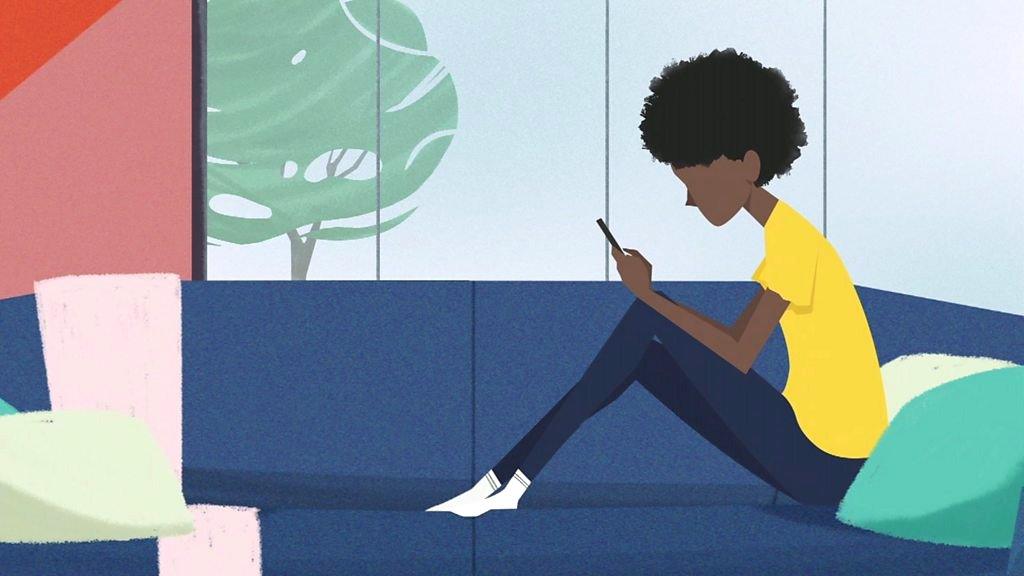Coronavirus: England to go into four-week lockdown
- Published
- comments
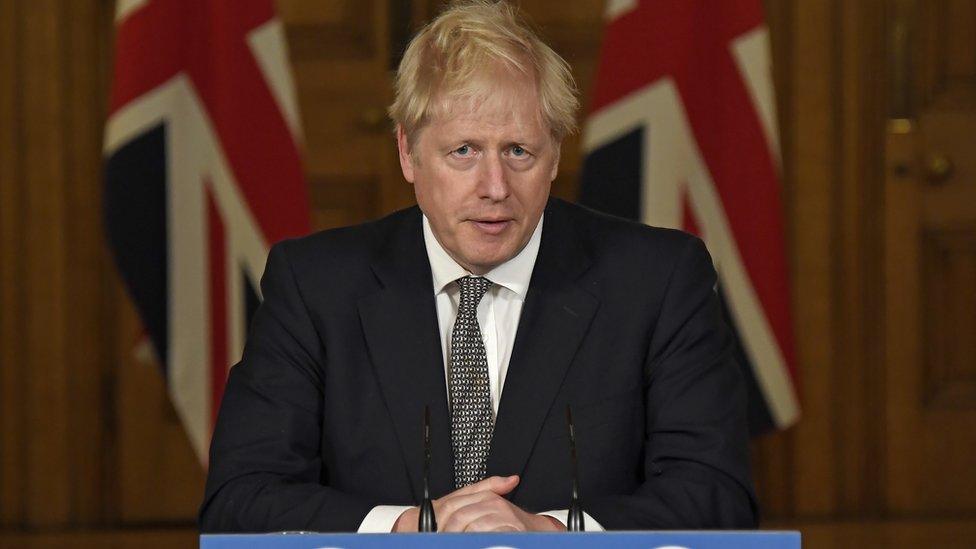
Boris Johnson made the announcement on Saturday evening
From Thursday, England will be in lockdown for four weeks - to help stop the spread of the coronavirus.
That means that everyone is being asked to stay at home whenever possible.
You can still go to school - they're staying open, and if the adults in your family can't do their job from home they'll still be able to go into work.
'Non-essential retail' will shut - that means places like restaurants, cinemas and leisure centres will close. But food shops will stay open, as will takeaways and click-and-collect services.
It comes after Mr Johnson introduced a three-tiered lockdown system earlier this month.
Unlike the tiered system, this new lockdown will apply to everyone and the restrictions will be much stricter.
Mr Johnson said that after 2 December the restrictions would be eased and regions would go back to the tiered system already in place across England.
What's happening in England?
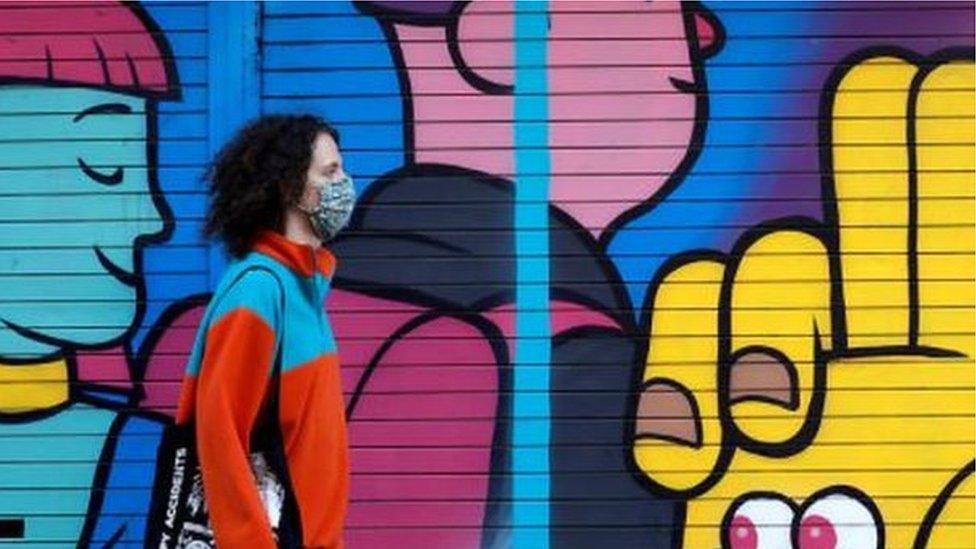
Mr Johnson made the decision to impose a nation-wide lockdown after scientific advisors predicted a dramatic rise in coronavirus cases and deaths if no action was taken
Under the new restrictions:
People are being told to stay at home except for specific reasons
These include work which cannot be done from home, childcare or education, exercise outdoors, medical reasons, essential shopping, providing care for vulnerable people or for volunteering, and visiting members of your support bubble
Meeting indoors or in private gardens will not be allowed, but individuals can meet one other person from another household outside in a public place
Non-essential retail will close, but can remain open for click-and-collect delivery
Pubs, bars, restaurants must close, but can still provide takeaway and delivery
Indoor and outdoor leisure facilities, such as gyms and swimming pools, will also close, along with entertainment venues and personal care facilities such as beauty salons
Places of worship will close, unless they are being used for funerals, to broadcast acts of worship, individual prayer, formal childcare, or essential services such as blood donation or food banks
Construction sites and manufacturing workplaces can remain open
Weddings and civil partnership ceremonies cannot take place except in exceptional circumstances, and funerals will be limited to a maximum of 30 people
Children can move between homes if their parents are separated
Clinically vulnerable people are asked to be "especially careful" but people are not being asked to resume shielding
Overnight stays, staying in a second home, and holidays will not be allowed - including in the UK and abroad - although there are exceptions, such as work trips
People should avoid all non-essential travel by private or public transport
The prime minister has also extended the furlough scheme until December, which means employers affected by the restrictions will be able to pay 80% of employee wages.
MPs will vote on the latest restrictions on Wednesday, and Labour has indicated it will back the lockdown.
Some Conservative party MPs are not happy with the decision as they do not want businesses to close.
What does it mean for you?
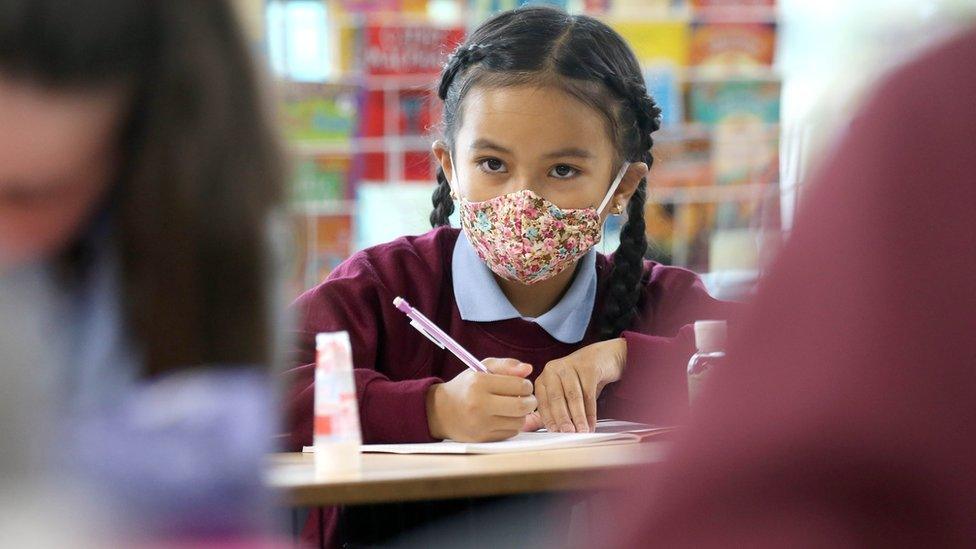
If you live in England, it will feel very much like the lockdown we had back in March but this time you will still be able to go to school.
Mr Johnson said that Christmas may be "very different" but he hoped taking action now would mean families can get together.
What's happening in Wales, Scotland and Northern Ireland?
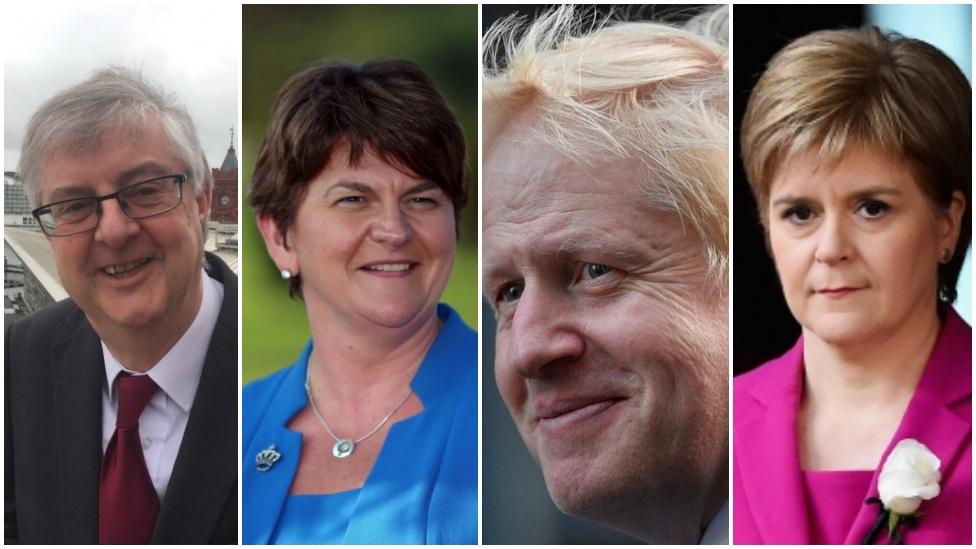
The leaders of the UK nations: Welsh First Minister Mark Drakeford, Northern Ireland's First Minister Arlene Foster, Prime Minister Boris Johnson and Scottish First Minister Nicola Sturgeon
Elsewhere in the UK, Wales' First Minister Mark Drakeford said the 17-day "firebreak" there will end as planned on 9 November.
He said that his cabinet will meet on Sunday to "discuss any potential border issues for Wales in light of any announcement" by Boris Johnson.
Scotland's First Minister Nicola Sturgeon has issued new advice that people should not travel to or from England, except for essential purposes, ahead of the nation's five-level system of restrictions coming into force on Monday.
Northern Ireland's First Minister First Minister Arlene Foster has said the current restrictions there will end "as planned" on 13 November. The restrictions in Northern Ireland began on Friday 17 October.
Schools in Northern Ireland will reopen on Monday.
- Published24 October 2020
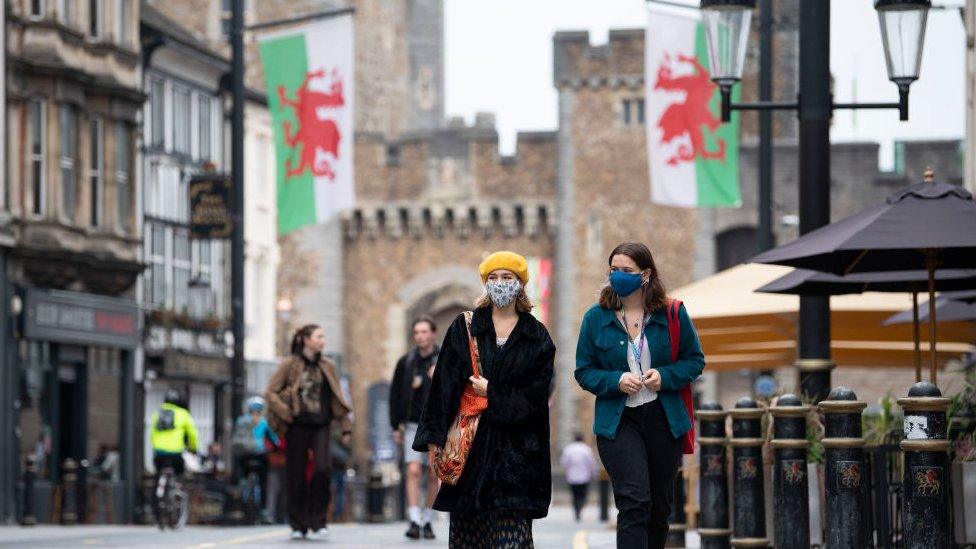
- Published11 November 2020
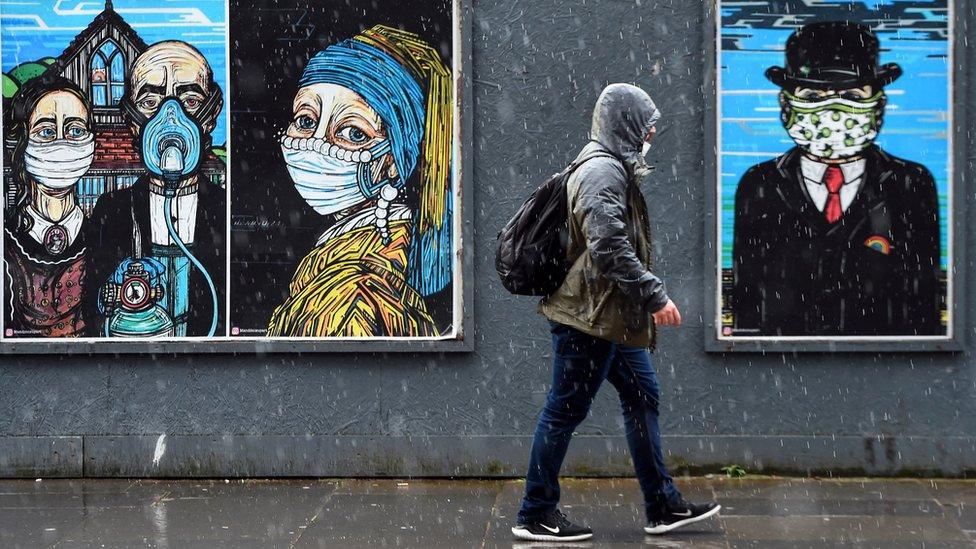
- Published29 August 2022
